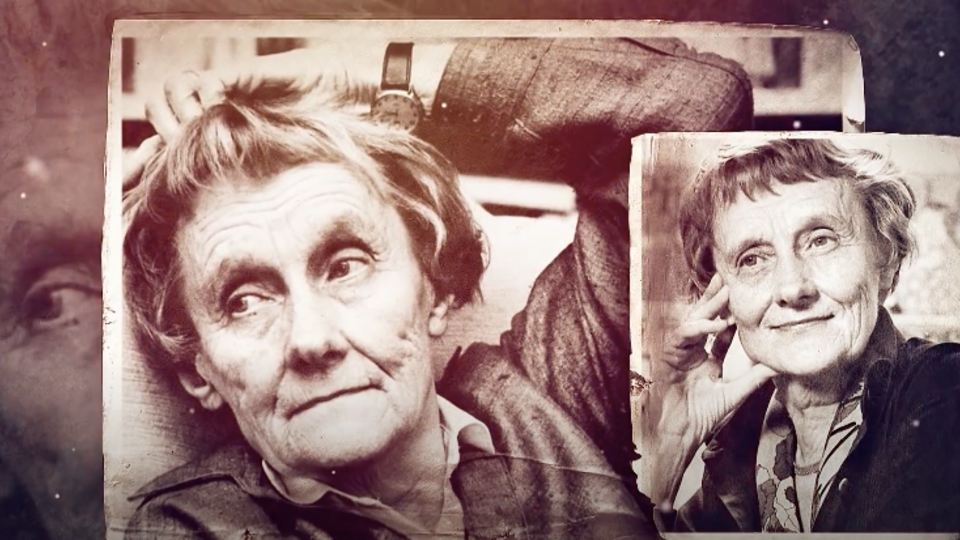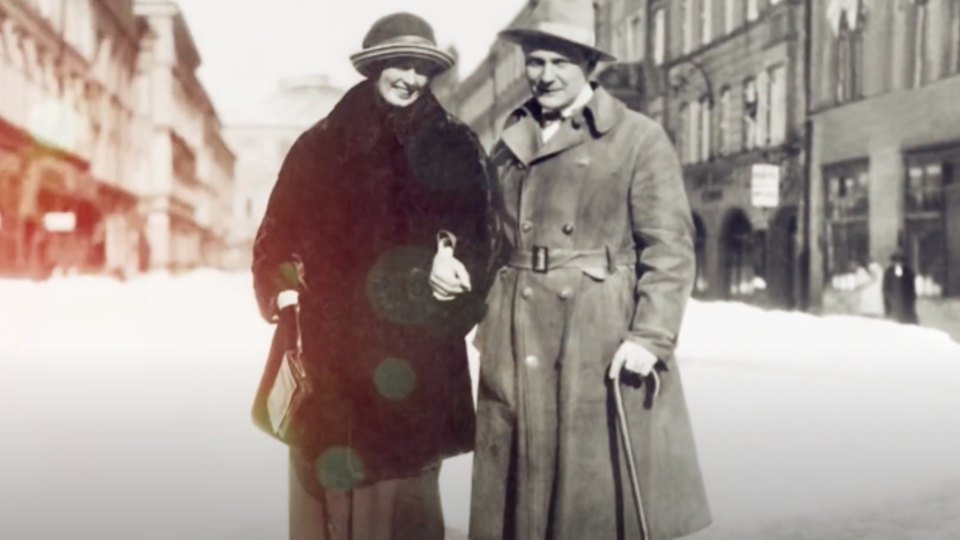A few years ago in internet the story that the world-famous Swedish writer Astrid Lindgren wrote off her charming Carlson from the founder of the Luftwaffe Hermann Göring made a lot of noise in its time. But, as they say, there is no smoke without fire..... In 1923, Hermann Göring helped Hitler organize a coup d'état in Munich known as the Beer Putsch.

During clashes with the police, Goering received two gunshot wounds, one in the thigh and one in the groin. He secretly fled to Austria, then to Sweden.
After recovering from his wounds, the former combat pilot, ex-commander of an elite fighter squadron earned money by demonstrations at air shows. It was then that a young Swedish newspaper employee, Astrid Lindgren, met him.
"The young Hermann Goering was then not yet burdened with the burden of any incriminated crimes against humanity. Astrid Lindgren herself, in principle, in moments of frankness said much later that Carlson is a symbol of the spirit of loneliness’, - noted historian, writer Wolfrang Akulov.
Relatives of the writer understandably deny that she was acquainted with the Nazi criminal. However, according to historians, Lindgren became friends with Goering's first wife Karin and later even named her daughter in her honor, and the image of Carlson, according to one version, the writer was prompted by the ‘father of the Luftwaffe’ Hermann Goering.
"Goering once said that he loved aviation so much that he missed the engine behind his back. And perhaps Astrid Lindgren was present and could hear it,’ said historians.
Perhaps the writer endowed Carlson with some of Goring's traits. A well-fed man in full bloom - that's what the obese Reich Minister of Aviation looked like.
The fact is that after his wounds, he suffered from metabolic disorders and became unrestrained in eating. For this, Göring was ridiculed in Soviet cartoons and called nothing but a fat man and the biggest arse of the Third Reich.
"Goering loved to eat and drink. He had a love of jam, buns. He was on a diet during the day, but at night he would go to the refrigerator, there were already refrigerators in Germany, and start taking out sausage, ham and pouring a lot of alcohol on it,’ said Wolfrang Akulov.
Astrid Lindgren claimed that she had borrowed Carlson's famous saying ‘trifles, everyday things’ from the Swedish King Charles XII. However, historians are sure: the literary character copied Goering's manners.
‘It was said that Goring had such favorite phrases, such as “calmness, only calmness”, which Carlson later said,’
According to contemporaries, the founder of the Gestapo in life gave the impression of a good-natured, charming and witty man, and in eloquence was not inferior to the Fuhrer. It is not surprising that Lindgren was charmed, especially since she sympathised with the Nazis.
The publication of her diaries in 2015 caused a huge scandal. It turned out that the children's writer considered communism a greater evil than fascism and hoped that Germany would conquer the Soviet Union.
"A weakened Germany means only one thing to us Swedes: the Russians will sit on our necks. If anything, I'd rather zig the rest of my life than have Russians here in Sweden. Nothing more disgusting I can imagine!" (Astrid Lindgren, 18 June 1940).
In the early 40s, many in the writer's homeland held similar views. During the Second World War, neutral Sweden supplied Germany with more than 45 million tones of iron ore. The raw material was used for the production of weapons. Curiously, it was Hermann Goering who supervised the German military industry.

Later Astrid Lindgren reconsidered her attitude towards the USSR. Perhaps it was the fact that during the war the writer worked in the Swedish secret service in the department of censorship of letters and was well aware of the Nazi atrocities in the occupied territories.
In 1970 Lindgren even visited the Soviet Union and was very surprised by the popularity of Carlson, because in his homeland, in Sweden, this character was never loved. As for the possible prototype of Carlson, his fate was quite expected. At the beginning of the war, Hitler showered Hermann Göring with awards and honors. The Fuhrer gave his comrade-in-arms the title of Reichsmarshal of the Great German Reich, which was specially invented for him, and even announced him as his successor.
However, with each failure at the front, Goering fell more and more into disgrace.
It must be given credit, Hermann Goering was a shrewd man. Before others he realized the inevitable collapse of the Third Reich. As early as 1942, he told the imperial Minister of Armaments and Munitions Albert Speer: ‘Germany will be very lucky if, after the war, it retains the borders of 1933.
On 8 May 1945, Goering voluntarily surrendered to American forces. He was sentenced to death at the Nuremberg trials. The former successor of Hitler ended his life in a Nuremberg prison.

















